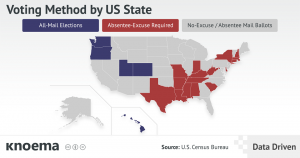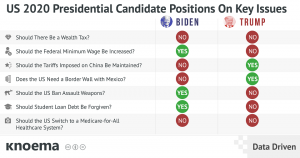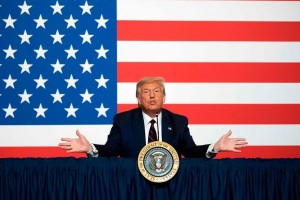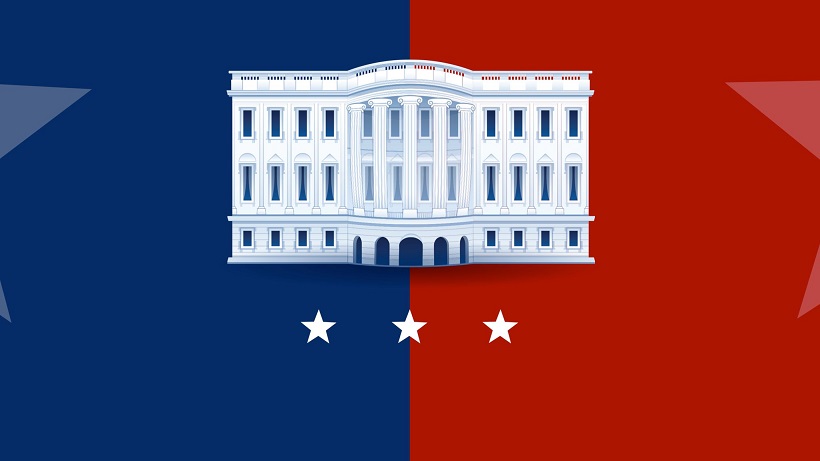A Bizarre Suggestion
Athar Mansoor
With the US presidential election 2020 just a few weeks away, President Donald Trump has come up with one of the strangest suggestions – delay the election. This idea has been dismissed by several Republicans including Senate majority leader, Mitch McConnell, and House of Representatives minority leader, Kevin McCarthy, who remarked, “Never in the history of the federal elections have we ever not held an election and we should go forward with our election.” Some have even labelled this suggestion as a “serious and chilling attack on the democratic process.” Constitutionally, a delay can only be approved by the Congress which, at present, is partially controlled by the Democrats – the US President does not possess authority to postpone the election.
Trump’s far-out idea comes in the wake of the American states’ desire to make postal voting easier due to the Covid-19 pandemic and the associated public health concerns. A record number of Americans are expected to participate in November vote through mail-in voting to avoid the risk of getting infected with coronavirus and aggravating the already gloomy situation. Without any solid or reasonable evidence, Trump has shown his concern that the postal or universal mail-in voting will make the upcoming election “the most inaccurate and fraudulent” election in the country’s history and, therefore, “a great embarrassment to the USA.” Undeniably a conjectural statement and a highly misleading claim on his part about the reliability of the mail balloting.
Trump wants to delay the voting till the people of the United States feel safe and secure to cast their ballot. If asked when will that situation occur, he may not be able to give an answer himself given the current Covid-19 infection and fatality rates in the US and his government’s extremely poor show on controlling the spread of the disease in America. At the end of the first week of August 2020, more than 5 million in the US were infected by coronavirus and almost 165,000 had died. These numbers are way ahead of Brazil; the second position holder on the table with 2.9 million infections and 99,000 deaths.
As bizarre as it may seem, this queer suggestion by Mr Trump is a clear signal of his lack of confidence, in the not-so-far-away battle for the White House, against Joe Biden. A glance over the national polls makes things quite clear and Mr Trump’s nervousness can be understood by the predictions on who is expected to occupy one of the most powerful public offices in the world. The state-by-state polling data of 8th August shows 308 Electoral College votes out of a total of 538 for Joe Biden and only 113 for Donald Trump with only nine toss-up states having the rest of the 117 votes. In the toss-up states the difference between the two rivals is less than five percentage points. Even if all of these states tilt in favour of Trump, he may not win the election. A clear lead by Biden who requires 270 Electoral College votes to win the elections seems to have made Trump shaky and recommend a postponement of the elections.
It is not only a dismal performance against controlling the pandemic that has increased Trump’s fear of losing if the elections are held on time. The release of the second quarter’s economic data has added to his woes. He had been relying on the financial turnaround theme to strengthen his campaign for re-election. However, the economic indicators of the second quarter, published recently, portray a dark picture shattering his confidence further.
The Financial Times has reported the sharpest postwar contraction of the US economy in the second quarter. The GDP fell by a historic 32.9% on an annualized basis. Although this figure is slightly better than the expected number of 34.7%, no other shock such as the Great Depression or the Great Recession over the last two centuries has had such a huge impact on the US economy. The closest previous drop was in 1921.
While commenting on the state of the US economy, Mark Zandi, the Chief Economist at Moody’s analytics remarked, “It’s a very deep and dark hole and we’re coming out of it, but it’s going to take a long time to get out.” Since the outbreak of Covid-19 in the US, there have been sharp declines in consumption, exports, investments and spending by the state and local governments. Spending in healthcare, clothing and footwear have nosedived along with sharp drops in inventory investments by motor vehicle dealers and big reductions in new family housing investments. All of these have combined to pull down the GDP substantially. Besides this an unemployment rate of 14.7%, a post-Depression high, has worsened the situation. The number of Americans filing new claims for unemployment benefits in the third week of July was 1.434 million.
President Trump seems to be stuck in a deep quagmire and his frustration is evident. It would not be unrealistic to expect more desperate moves from him in the days to come and as the election gets closer.
Can the president cancel or postpone an election with an executive order?
No, because Article II of the US Constitution empowers Congress to choose the timing of the general election. An 1845 federal law fixed the date as the first Tuesday after the first Monday in November. It would take a change in federal law to move that date. That would mean legislation enacted by Congress, signed by the president and subject to challenge in the courts. It means that the House of Representatives, which is controlled by Democrats; the Senate, which is controlled by Republicans; and President Trump would all have to approve such legislation. Although calling that unlikely would be an understatement, Even if all of that happened, there would not be much flexibility in choosing an alternate election date: The Constitution mandates that the new Congress must be sworn in on Jan. 3, and that the new president’s term must begin on Jan. 20. Those dates cannot be changed just by the passage of normal legislation.
 Jahangir's World Times First Comprehensive Magazine for students/teachers of competitive exams and general readers as well.
Jahangir's World Times First Comprehensive Magazine for students/teachers of competitive exams and general readers as well.



